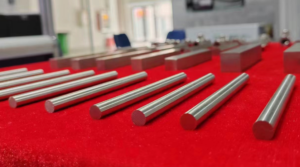As a seasoned expert in the field of metallurgical materials from Sino Special Metal, I am often asked about the nomenclature behind various alloys, especially those with specialized applications. Among these, high-speed steel (HSS) holds a unique position due to its exceptional properties and widespread use. The question of why do they call it high-speed steel deserves a thorough and authoritative explanation.

Why do they call it high-speed steel?
The nomenclature “high-speed steel” is derived from its ability to perform cutting and machining operations at much higher speeds than traditional steel alloys. Prior to the development of high-speed steel, tool steels were limited in their cutting speed, often resulting in excessive heat generation and tool wear. This not only limited production efficiency but also compromised the quality of the finished product.
The genesis of high-speed steel lies in the need to overcome these limitations. The alloy was specifically designed to maintain its hardness, wear resistance, and cutting edge sharpness even at elevated temperatures. This was achieved through the addition of alloying elements such as tungsten, molybdenum, cobalt, and chromium. These elements enhance the steel’s heat resistance, allowing it to retain its mechanical properties even under extreme conditions.
The term “high-speed” in the name of this alloy is a direct reference to its ability to withstand the high cutting speeds achieved on modern machine tools. With high-speed steel, manufacturers can significantly increase production rates while maintaining precision and quality. This makes it an ideal material for applications such as milling, drilling, and turning, where high-speed operations are critical.
Moreover, the nomenclature also reflects the historical development of this alloy. The early inventors of high-speed steel, such as F.W. Taylor and M. White, recognized its potential to revolutionize the machining industry. They named it accordingly, emphasizing its ability to enable high-speed cutting operations that were previously unattainable.
Over the years, high-speed steel has undergone numerous modifications and improvements, but the core principle remains the same: to provide a material that can withstand the rigors of high-speed cutting. This is achieved through a combination of careful alloy design, precise manufacturing processes, and heat treatment techniques.
Conclusion
In summary, the name “high-speed steel” is a testament to its unique ability to perform at speeds far exceeding traditional steel alloys. It is a direct reflection of its specialized properties and the historical significance it holds in the advancement of machining technology.
Thank you for reading our article and we hope it can help you to find the answer to the question: Why do they call it high-speed steel? If you are looking for high-speed steel suppliers and manufacturers online now, we would advise you to visit Sino Special Metal for more information.
As a top supplier of high-speed steels from Shanghai China, Sino Special Metal offers customers high-quality high-speed steel products at a very competitive price.




